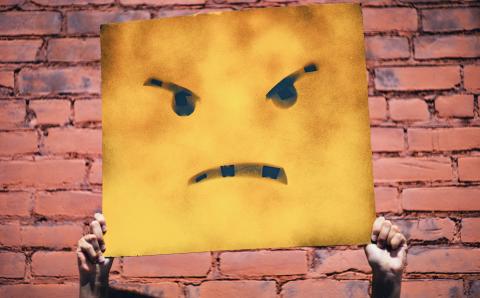Tornadoes, hurricanes, or floods used to be called “acts of God.” The language we use now is less theologically loaded: “natural disasters.”
But that doesn’t really take God off the hook, does it?
For those of us who proclaim God the Creator, Redeemer, and sustainer of the world, we know that creation is under his control:
The Lord does whatever pleases him,
in the heavens and on the earth,
in the seas and all their depths.
He makes clouds rise from the ends of the earth;
he sends lightning with the rain
and brings out the wind from his storehouses (Ps. 135:6-7).
How then should we think about natural disasters?
God created the world to work in certain ways and follow certain rules. The sun rises and sets. Seasons come and go. And when conditions are right, tornadoes, hurricanes, and floods result. The Belgic Confession describes this as God’s “orderly arrangement” of the world (Art. 13). Storms arise because that’s how God designed the world to work. We might be in the way of a storm and suffer loss as a result, but we do not say that God sent a storm to punish us. “The Lord sends rain on the just and the unjust” (Matt. 5:45). Everyone is affected by bad weather.
We also need to be clear that natural disasters are not caused by Satan. Satan is a creature, just as we are. Satan does not control creation. Satan can, however, influence us. Satan can turn us toward selfishness and the exploitation of creation for our own purposes. That’s when God’s “orderly arrangement” gets disordered.
God designed us to work with creation as God’s covenant partners (Gen. 1:28-29; Ps. 8). God entrusted God’s good world to our care. But in our selfishness, we have not lived up to that partnership. We have broken God’s rules for caring for creation, and are paying the price. Scientists predict that natural disasters will continue to get worse because of what we have done.
Think about it this way: If I pour gas on my lawn, the grass will die. Is God in charge of the grass? Yes. Has God made me God’s steward to care for the grass? Yes. Did God cause the grass to die? No. I did. I was working against God’s “orderly arrangement” for grass.
What has happened across our planet is that we have “poured gas” on the lawns we’ve been given to steward, and we are living with the consequences of our actions. Just as I can’t pour gas on my lawn and then say, “Well, if the grass died, it’s God’s will,” we can’t wantonly pollute the earth and then say, “Well, if the storms are getting worse, it’s God’s will.”
To pour gas on a lawn and not expect the grass to die is ignorant. To ruin God’s good earth and not expect things to get worse is just as bad.
Thankfully, God loves the world, and God loves us. If we listen to creation groaning (Rom. 8:22), if we repent of our sin against creation and work for restoration and renewal, God can use us to bring some healing back to God’s beautiful world.
We all marveled at the images from major cities when commuting stopped and pollution plummeted. We saw the animals come back into national parks and into our backyards. We heard the birds louder than we had before. God invites us to care for creation when the pandemic is over, too, acting in covenant partnership with our Creator and restoring God’s “orderly arrangement.”
About the Author
Mary Hulst is university pastor for Calvin University and teaches at Calvin Theological Seminary, Grand Rapids, Mich.








